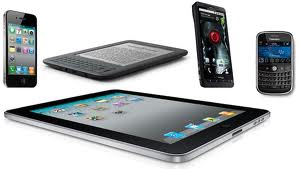How to charge your Phone Battery in just seconds.
Plastic electrolyte allegedly up to 10,000 times more powerful than existing cells.
The phrase “My
mobile phone is about to run out of battery” is now normal since the
introduction of smarts phone.
Phone experts and
researchers believes in the future smart phones may not need to be plugged in
for hours to recharge.
European
scientists now say they may be heading towards the holy grail for our digital
age.
They say using Plastic electrolyte
which could be a reality within two years, mobile phones and laptops which
can be charged up in just a few seconds.
This is made
possible by using an alternative to battery power potentially between 1,000 and
10,000 times more powerful than existing supercapacitors.
Researchers also
believe unlike a conventional battery, Supercapacitors store energy using
electrodes and electrolytes and both charge and deliver energy quickly.
The main
disadvantage and shortcoming of this technology is their low energy density,
meaning the amount they can store per kilogram is very low.
The lead doctor
at university of Surrey said said: ‘There is a global search for new energy
storage technology and this new ultra-capacity supercapacitor has the potential
to open the door to unimaginably exciting developments.’
Scientists have
invented a type of plastic electrolyte to overcome the tricky problem of a
supercapacitor – it often needs to be huge to work.
The lead Scientists and research involved with the Phone Battery .
The lead
Scientists and research involved in the projects have also said: ‘At the moment
a supercapacitor, to charge a mobile phone within seconds, would need to have a
supercapacitor 20 times heavier than a current phone battery.
‘You would
probably need a wheelbarrow for your mobile phone. You could carry it, but you
would be struggling.’
The perfect
polymer was discovered after three years, the type of plastic used as an
electrolyte to store electricity in a supercapacitor.
Currently the
main focus and secret material for supercapacitors, which scientists will not
provide the formula for, is also hoped to allow electric cars to travel similar
distances to petrol cars without the need to stop for an eight-hour charging break.
Instead they
could conceivably be used to drive from London to Edinburgh, re-charging fully
in the time it takes to fill a regular car with fuel.
Supercapacitor
buses are already used in China, but have a very limited range, whereas the new
technology could allow them to recharge every 46, rather than two to three,
stops.
The battery
industry currently believes that this is an extremely exciting and potentially
game-changing development.’






Comments
Post a Comment